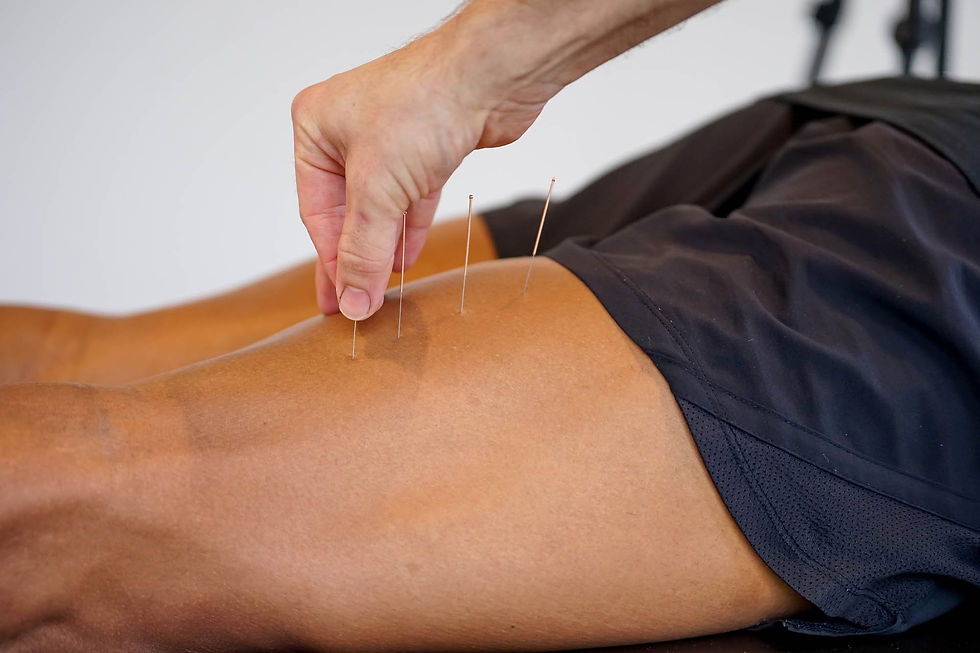Dry Needling vs Acupuncture
- Jason Trinh

- Feb 2, 2023
- 3 min read
Updated: Oct 31, 2024
We often have patients who ask us about the benefits of dry needling and acupuncture, and although the terms have been used interchangeably in modern times, it is also important to distinguish between the two therapies.
Dry needling and acupuncture are ancient healing practices that have been used for thousands of years to alleviate pain and promote overall wellness. In recent years, these therapies have become increasingly popular in Western medicine as more and more people discover the many benefits they offer, and are often used by physiotherapists to alleviate pain and promote overall wellness. Both therapies involve the insertion of thin needles into specific points on the body, but there are some important differences between the two.

Acupuncture is a traditional Chinese therapy that has been used for thousands of years. It is based on the belief that there is an energy flow, known as Qi, that runs through the body. When this energy flow is disrupted, it can lead to pain and illness. Acupuncture involves the insertion of needles into specific points on the body known as acupoints. These points are located along pathways called meridians, which correspond to different organ systems in the body. The goal of acupuncture is to restore the balance of Qi and alleviate pain and other symptoms. By stimulating these points, practitioners aim to balance the flow of energy and promote healing and wellness.
Dry needling, on the other hand, is a modern therapy that is based on Western medicine principles. It involves the insertion of needles into points of muscle tension or trigger points. These points are areas of muscle that may have become tight and knotted, leading to pain and limited range of motion or strength. The goal of dry needling is to release the tension in these points, thereby reducing pain and improving muscle function.

One of the main differences between acupuncture and dry needling is the philosophy behind each therapy. Acupuncture is deeply rooted in traditional Chinese medicine and aims to balance energy flow in the body, whereas dry needling is based on Western medicine principles and targets specific points of muscle tension. Another key difference is the number of needles used. Acupuncture typically involves the insertion of several needles at once, whereas dry needling typically uses just one or two needles at a time although this depends on the individual’s condition.
Both acupuncture and dry needling can be effective therapies for pain management and injury recovery. Acupuncture can be especially beneficial for treating people with a wide range of conditions, including chronic pain, headaches, anxiety, depression, and infertility issues. They also promote overall wellness by boosting the immune system, reducing stress, and improving sleep. Dry needling can be particularly useful for people with muscle tension and trigger points, such as those with myofascial pain, upper trap tension, and tennis elbow etc.

In summary, both acupuncture and dry needling are considered to be safe therapies with minimal risks as they are relatively non-invasive and have very few side effects. They are also safe to use in conjunction with other therapies, making them an excellent complementary treatment option used by physiotherapists for improving overall health and well-being. At FXNL Rehab, our practitioners predominantly use dry needling as an adjunct to their treatment, with no added cost as it is included with the cost of treatment. Remember, it is important to seek treatment from a qualified practitioner who is trained in these therapies.
Book an appointment with one of our expert therapists or call us at the clinic 2 8018 9599 to speak to one of our friendly admin staff.
Jason Trinh
Director & Principal Physiotherapist | FXNL Rehab




Comments